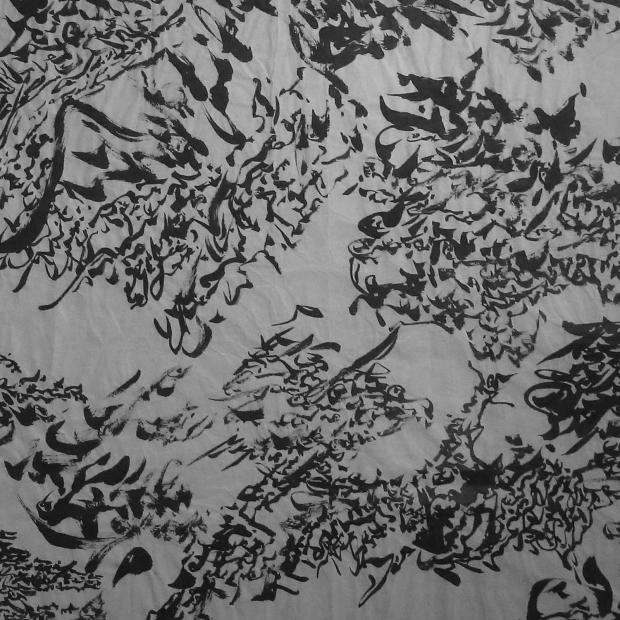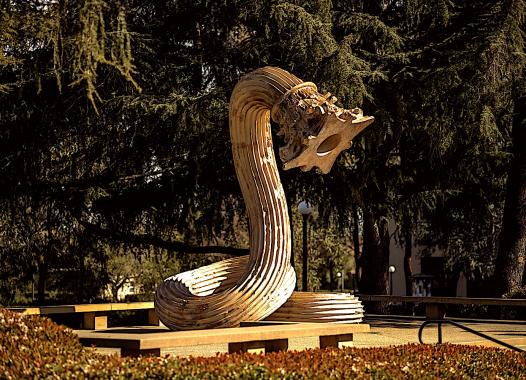
The Untranslatable refers to how concepts assimilate actually existing ways of speaking and being and how ways of speaking and being interfere with concepts.
New York
289
In his Death Penalty seminar, Derrida expatiates on the legal rationale offered in Plato’s Laws for Socrates’ condemnation to death, focusing on this passage:
If he [the ambassador] seems to have returned corrupted, let him keep company with no one, neither young man nor old, in his pretense of wisdom; if he obeys the rulers, let him live as a private citizen; if not, let him die, if he is convicted in the law-court for illicit interference in education and the laws.
Derrida observes:
The council, the syllagos, receives visitors, consultants, observers, experts returning from abroad where they went to study the customs and laws of other countries. Well, if one of them comes back spoiled or corrupted, if he continues to make a display of his false wisdom, to refer willy-nilly to foreign models and if he does not obey the magistrate, “he shall have sentence of death (tethnato) if the court convicts him of illicit interference in any matter of education or legislation (peri ten paideian kai tous noumous) Laws 952d. Once the court of justice has proved that he is intervening wrongly, on behalf of the foreigner, in the formation of the youth and the formation of the laws, he is punished with death.[1]
In addition to revealing how the stranger—and by extension the teacher-translator—when held responsible for imparting foreign ideas, becomes criminalized, this moment in the Laws illuminates core principles of Athenian democracy, political justice and legal custom. The phrase peri ten paideian kai tous noumous, which focuses on the infraction of illicit interference, or “intervening wrongly,” refers to a political subject who, on the one hand, ignores the virtue of political usefulness and behavior of the proper citizen (extolled by Thucydides in the funeral oration of Pericles), and, on the other hand, traduces the ideal of aristocratic non-interference conventionally associated with Odysseus when (as Plato recounts in a myth told by Er in the final book of the Republic) his soul chooses to be reborn into a life without public involvement (as “one lying off somewhere that had been neglected by the others”).[2]
A footnote by Peggy Kamuf, the translator of Derrida’s death penalty seminar, indicates how the Greek phrase becomes a translation flashpoint: “In this quotation, Derrida has significantly modified the published French translation by substituting d'ingérance illicite [rendered here as ‘illicit interference’] for de s’immiscer [‘interfering’; A. E. Taylor translates: ‘meddling’].” The Penguin edition of the Laws, translated by the British classicist Trevor J. Saunders, also has “meddling.”[3] “Meddling connotes the character of the busybody, whose latter-day equivalent might be the lobbyist or the quasi-seditious politician; consider Speaker John Boehner’s smug defense of his interference in foreign policy with his invitation to Israeli Prime Minister Benjamin Netanyahu to speak to a joint session of Congress, by claiming that it was necessary because, when it comes to terrorism, the president [Obama] “is trying to act like it’s not there.”
Meddling does not fall wide of the mark of the French verb s’immiscer (meaning to get mixed up in, to fiddle with) selected by Plato's French translator Auguste Diès in the edition used by Derrida. But Derrida wants to ramp up with something stronger than meddling. As Kay Gabriel informs us, ‘the Greek word that Derrida re-translates as ingérance illicite is polupragmonôn, from which polupragmôn, the figure of the busybody, is derived. This busy-body runs active interference, to the point of threatening Athenian justice—\and thus making sense of the moment in Plato’s Republic (433a) where Socrates defines justice as “to do one’s own task and not to polupragmonein.’[4] While the Republic may run counter to a lot of civic ideology of Athenian democracy, it remains evident that polupragmonein is a condemnable offense. It violates the principle of usefulness by implying political involvement in all the wrong ways: it is an impediment to the exercise of power; and, at worst, it exposes power's arbitrary basis. Ingérance captures the full thrust of the negative, referring to one who forces him or herself on the polity. Obstruction of justice, sedition, government shut-down, all these threats to the demos issue from such a term. In its broadest ascription ingérance spans dirigisme (top-down administration, state autocracy, ingérance étatique); political inoperability (désoeuvrement, blockage, direct action, the politics of autonomia); and the impact of the pharmakon, the parasitic host, which, introduced into the system, functions like interferon, a compound of protein molecules released by host cells to block viral replication whose harmful side-effects include the triggering of autoimmune disorders. From the gaps and jumps in translation, from the effort required to reconstruct what is not translated, a greater appreciation of the politics of interference comes to the fore. I think of it as a political theory of the impolitic crossed with subversive pedagogy itself arising directly out of translation trouble that, on a purely linguistic level, is of course a form of interference with texts, laws of grammar and logic, protocols of the political, and grooved ways of thinking, articulating, and socially comporting.
Barbara Cassin has an expression for this translation trouble. She calls it ‘philosophizing in languages.’[5] In the ensemble of her writings on the Pre-Socratics and the Sophists she developed the construct of the intraduisible, “ to point up the instability of meaning and sense-making, the equivocity of homonymy and amphiboly, the performative dimension of discursive sophistic effects, the risks and rewards of “consistent relativism.”[6] Cassin gives herself over to a praxis that involves relinquishing the hold of words and conceptual networks, and engaging fully with the symptomologies that emerge when we keep on (not) translating. For Cassin what follows from this point is entrance into the labyrinth of Lacanian sophistry, a psychoanalytic doxography in which non-sense is an incontrovertible core of signifying practices that elicit rhetorical workarounds.[7] Psychoanalysis becomes a linguistic process philosophy, present and perpetual.
Following Cassin, I have defined “the Untranslatable” not as the name of a concept, but as a dual practice of theoretical interference and workaround; as a praxis of cognizing philologically, deconstructively and politically. The starting point consists of particularities of translational resistance that account for a text's singular unreadability, an effect duly noted, in the case of the Plato’s Laws for example, by translator Trevor Saunders:
Plato’s Greek in the Laws is difficult: emphatic yet imprecise, elaborate yet careless, prolix yet curiously elliptical; the meaning is often obscure and the translator is forced to turn interpreter. How should such an extraordinary text be rendered into English? Any translation which preserved every note of the original would be doomed to failure more surely in the case of the Laws than of almost any other classical text: it would be quite unreadable.[8]
The Untranslatable imposes an exigent relation on the translator; it makes impossible demands, bringing the translation to the brink of failure or brooking that failure in translations that never materialize.
In his review in the London Review of Books of the Dictionary of Untranslatables: A Philosophical Lexicon Christopher Prendergast took issue with the notion of the Untranslatable. Noting that the English editors (myself, Jacques Lezra and Michael Wood), chose to foreground the term in the main title whereas it appeared in the subtitle in the original French edition, Prendergast (like David Bellos, Lawrence Venuti, and other noted critics in the translation field) deemed the Untranslatable to be a red herring:
This is a term that conservative fundamentalists like; it puts up barriers and ring-fences cultures. What’s it doing here? A short (and uncharitable) answer is: not very much. Apter claims that ‘it is by no means self-evident what ‘untranslatability’ means’. But that is far from being self-evidently the case. ‘Untranslatable’ normally means exactly what it says: that which cannot be translated. Cassin wants to deny this: ‘untranslatables in no way implies that the terms in question…are not and cannot be translated’. In no way? One possible answer to that is: in every way. There does seem to be here a confusion between the untranslatable and the untranslated. The former is essentialist all the way down (which is why fundamentalists like it), an absolute blockage on transmission. The untranslated is an altogether more open and porous category. It has to do more with difficulty than impossibility (“difficulty” and “difficult” recur often in the actual work of the volume), although not typically of the same order of difficulty as that faced by the translator of poetry (Valéry described this as dancing in chains) or of paranomastic prose (Finnegans Wake, while it has been translated into several languages, remains basically untranslatable into anything other than what it itself is made of, “Eurish."[9]
While it should be acknowledged that much of what the Untranslatable does concerns the navigation of what Prendergast characterizes as “hits and mishits, convergences and divergences, continuities and breaks, incomplete and imperfect translation, or even plain vanilla translation,” he fails to take account of its distinctive “abilities.” Not a reified essence of linguistic singularity, nor a simple remainder, it refers to how concepts assimilate actually existing ways of speaking and being and how ways of speaking and being interfere with concepts. And while the Untranslatable might well be taken as proscriptive, its force of interdiction is hardly reducible to a defense of fundamentalism, universal dogma, political absolutism or censorship. Rather, it operates like interferon; affirming the presence of Unverständlichkeit, un-understandability, unintelligibility, and inoperability. The political Untranslatable, in this sense, is what disables the workings of instrumental language; ushering in the “foreign” on a plurilingual surge and injecting the language of the street into the system of the laws.
Experimenting, then, with doing things with political Untranslatables, one is led to further theorize interference within micropolitics. Consider how the word “occupy”—freighted with the connotations of colonial occupation and violent resource extraction in economically vulnerable regions of the planet—was interfered with by “Occupy Wall Street.” Something similar happened to the phrase “Blocchiamo tutto!”, which appeared on a Turin wall in 2012 as part of the tag, “Il potere è logistico. Blocchiamo tutto!” (Power is logistic. Let’s block everything), a phrase taken as a declaration of war on infrastructure by a range of militant small groups.[10] “Zone” in French, has a similar trajectory; normally associated with zones of detention, camps or dangerous neighborhoods, it was transfigured by the acroynym ZAD, (zones à défendre), often used as a synonym for squatting in fallow property or and for actions against environmentally damaging construction projects (which resulted not long ago in the killing of Rémi Fraisse, who was protesting the construction of a dam at Sivens). Consider too, Maidan, the Ukrainian term for central square. As Timothy Snyder wrote in an article in The New York Review of Books on the Kiev uprising:
What does it mean to come to the Maidan? The square is located close to some of the major buildings of government, and is now a traditional site of protest. Interestingly, the word maidan exists in Ukrainian but not in Russian, but even people speaking Russian use it because of its special implications. In origin it is just the Arabic word for “square,” a public place. But a maidan now means in Ukrainian what the Greek word agora means in English: not just a marketplace where people happen to meet, but a place where they deliberately meet, precisely in order to deliberate, to speak, and to create a political society. During the protests the word maidan has come to mean the act of public politics itself, so that for example people who use their cars to organize public actions and protect other protestors are called the automaidan.[11]
Maidan in its philology connects Arabic, Greek and Ukrainian notions of public politics. It is site-specific, yet connected transpolitically to places of assembly and occupation all over the world where insurrection erupted: Syntagma Square, Tahrir, Taksim, Madrid’s Puerta del Sol, Zucotti Park, Ogawa Plaza in Oakland. It designates a particular instance of competing nationalisms in eastern Europe (Putin's envoy officially denounced ‘the nationalist-revolutionary terrorist Maidan’), as well as strategic solidarity among regionally, ethnically and religiously conflictual groups. It is a lodestone of language politics, as well as a breakout scene of sexual politics, with feminists and LGBT volunteers well-represented at hospitals and emergency hotlines. The sexual politics are a particularly important feature of Maidan’s untranslatability: for, as we know, gay-bashing in Russia is part of a Kremlin-backed effort to galvanize anti-European Union factions; and to force groups that might otherwise be strongly critical of Western neoliberalism into becoming aligned with it. The Maidan political map is configured unpredictably according to its case-sensitive retranslation. Keywords are always inflected by language, but most dictionaries of philosophy tend to forget the politics of translation in adopting transhistorical approaches to concepts.
The transiting of Maidan and “occupy” to unfixed forms and sites of global interference, ranging from resistance to oligarchic repression to anti-capitalist pushback, reminds us that political glossaries and lexicons have a historic role in opposition politics. Think here of the glossary that Althusser’s English translator Ben Brewster appended to For Marx. Terms like alienation, epistemological break, conjuncture, consciousness, contradiction, humanism, ideology, dialectical materialism, practice, problematic, and theory project an encapsulated political program, and it is perhaps for this reason that Althusser gave them close attention. “Thank you for your glossary,” he wrote to Brewster; “What you have done is extremely important from a political, educational and theoretical point of view... I return your text with a whole series of corrections and interpolations (some of which are fairly long and important, you will see why).”[12] After noting the genealogy of “break” and “problematic,” from Gaston Bachelard’s early coinage of “epistemological break,” to Georges Canguilhem’s unsystematic usage, to Michel Foucault’s Althusserian appropriation, he underscored the importance of “correction.”
Althusser’s political activation of theory in the form of an “interfered with” glossary of his own critical lexicon brings to mind Alain Badiou’s philosophical lexicon of riots and uprisings in The Rebirth of History (Le Réveil de l’Histoire), his response to the Arab Spring. Badiou proceeds through a tripartite typology. The first term, “immediate riot,” is defined as a tumultuous assembly of the young, characterized by weak localization, and a lack of distinction between universalizable intention and random rage, between demonstrating and pillaging. The second is “latent” or “pre-political” riot, marked by a qualitative extension outward from the local. The example he gives is the emergence of a single slogan endorsed by disparate voices, “Mubarak, clear off!” “Thus is created,” Badiou affirms,
the possibility of a victory, since what is immediately at stake in the riot has been decided ... The movement can persist in anticipation of a specific material satisfaction: the departure of a man whose name— a short while before taboo, but now publicly condemned to ignominious erasure—is brandished.’[13]
The third term is “historical riot,” and it is closest to reaching the bar of what Badiou recognizes as an event. The event is really an advent, the emergence of an “intervallic period” that reboots the revolutionary sequence by nullifying the “natural harmony between unbridled capitalism and impotent democracy.”[14] For the riot to become historical, it must become political, which is to say, come to embody the “subjective sharing of an Idea, and demonstrate that “The inexistent has arisen.”[15] It must, as it turns out, run interference in the affairs of state. Badiou reprises Mao's injunction issued during the Cultural Revolution: “Get involved in the affairs of state!”[16] But he remakes it into a slogan for the new times of insurrection via Fragment 2 of René Char’s Feuillets d'Hypnos where one line rings out as a rallying cry: “Don't linger in the rut of results.”[17] (“Ne t’attarde pas à l’ornière des résultats.”)[18] One might keep on translating this line as: “Gum up the works of affairs of state! Dare to interfere! Commit the crime of polupragmonein!” With each act of translation, from political event to event glossary, from poetry to call to arms, the lexicon of historical riot joins the language of the poets in answer to the query about how to translate the untranslatable at the very opening of the book: “What is happening to us in the early years of the century - something that would appear not to have any clear name in any accepted language?” [19] Badiou will adopt a similar politics of renaming in The Communist Hypothesis as he distinguishes four typologies of May ’68. Of particular urgency is the need to recall the word “Communism” from its derisive and corrupted usage in neoliberal circulation, thus returning it to its signification prime as a word equal to egalitarianism, and coincidental with the reauthorized right to words and expressions like “the people,” “workers,”and “the abolition of private property.” The recourse to political Untranslatables in this instance is not (as it is with Cassin), a matter of creating political solidarity in and through philosophizing in languages, but a labor of rescuing radical political philology from the censors:
We have to put an end to linguistic terrorism that delivers us into the hands of our enemies. Giving up on the language of the issue, and accepting the terror that subjectively forbids us to pronounce words that offend dominant sensibilities, is an intolerable form of oppression.[20]
Language is crucial to Badiou’s reformulation of the communist hypothesis, as when he inversely retranslates Guizot’s hortatory prescription at the dawning of French capitalism, “Get rich!,” as “Live without an Idea!” And from thence: “Have the courage to support the idea, and it can only be the communist idea in its generic sense.”[21]
Ayman El-Desouky has notably worked the political Untranslatable in his scansion of the early days of the Egyptian Revolution with reference to “the amara on the Square.” A term with a long history, it comes back in the context of Tahrir as the name for the conflation of political connective agency with aesthetic praxis:
The terms amara and amar have their roots in classical Arabic, originally denoting a pile of stones set up in a waterless desert to signal the right direction to those who may have lost their way (according to al-Fayruzabadi’s lexicon, al-Qamus al-muhit and Edward Lane’s Arabic English Lexicon). Amara has also evolved into denoting signs, marks, signposts or elevated ground and has come to indicate an appointed time—lexical metaphors rather appropriate for the resonant revolutionary acts in Tahrir …
The specific usages current in Egyptian Arabic have been noted by ElSaid Badawi and Martin Hinds in their Dictionary of Egyptian Arabic, defining it as sign or indication or as evidence of good faith, an example of which is given from everyday mundane practice: “give me an amara so that your home helper will let me into your flat.” This example of a social amara captures the potential range of the forms of amara as either particular signs or details and information only the participants are privy to, or a narrative of an incident known only to them. The visual forms of recognition are encapsulated in the stock phrase “on his face are the amarat of …”“ala wishshu amarat …) The narrative offered in the exchanges, emphasizing a shared identity or a common bond, usually begins with the stock phrase: “by the amara of…”, which traverses social boundaries. (…) the import of this spoken phrase was transmuted into the lexical and syntactic patterns of the slogans and the visual iconicity of the signs, street art and performances on Tahrir Square, and beyond. Unspoken but extending into the dimensions of social reality, invisibly as in the suggested extension of a gesture, amara constructions offered the forms in which the verbal as well as visual resonances that seemingly individual and disparate acts have struck with the collective Egyptian imaginary.[22]
Referring to Badiou, El-Desouky extends the auguring force of the expression “by the amara of...” to something “hitherto untheorized,” associated by Badiou with “movement communism” and by Zizek with a “new political reality” posed against “ideological objective reality.” Unlike “movement communism” or “new political reality,” however, amara is not aporetic; its contents are substantiated by specific aesthetic practices of connective agency accessed on the oblique of Arabic philology.[23] Amara joins a glossary of translational politics responsive to subversive pedagogy and forms of agency afforded by actions in the square; in short, a politics of interference, of ingérance illicite.
[1] Jacques Derrida, The Death Penalty, vol. I, trans. Peggy Kamuf, ed. Geoffrey Bennington et al. (Chicago: University of Chicago Press, 2013), 7. Originally published as Seminaire: La peine de mort, vol. I, ed. Geoffrey Bennington, et al. (Paris: Editions Galilee, 2012), 31. The French edition of the Laws cited is Platon, Les Lois, Libre XII, 95id, Oeuvres completes, trans. and ed. Auguste Dies (Paris: Les Belles Lettres, 1956), 61.
[2] In the final book of the Republic (narrated, Socrates says, by someone named Er), the souls are choosing the lives in which they will be reincarnated: “[Er said that] by chance the soul of Odysseus had drawn the final lot of all the souls and went forward to make its choice. Remembering the desire for honour of its many former toils it went about its search carefully and for a long time, looking for the life of a man, a private citizen and apragmôn, and found only one lying off somewhere that had been neglected by the others, and seeing it said that it would have done the same thing even had it drawn the first lot, and chose that life with delight.” Plato, Republic 62oc-d
[3] Derrida, The Death Penalty, 7. The more recent translation by Luc Brisson and Jean-Francois Pradeau, has “se meler.” Platon, les lois (Paris: Garnier-Flammarion, 2006), vol. II, livres VII a XII.
[4] Kay Gabriel, email correspondence, Dec. 28, 2014. [Editorial note: For font/diacritics consult original.]
[5] Barbara Cassin, “Preface,” “Philosophizing in Languages,” trans. Yves Gilonne, Nottingham French Studies 49:2, 2010, 18.
[6] For an overview of her writings in English, see Barbara Cassin, Sophistical Practice: Toward a Consistent Relativism (New York: Fordham University Press, 2014).
[7] See Barbara Cassin, Jacques le sophiste. Lacan, logos et psychanalyse (Paris: EPEL, 2012).
[8] Plato, Laws trans., introduction by Trevor J. Saunders, (London: Penguin, 1970), 39.
[9] Christopher Prendergast, “Pirouette on a Sixpence,” London Review of Books 37:17, 2015, 35-7.
[10] Comité invisible, “A nos amis,” https://ainostriamici.noblogs.org/files/2015/05/Cap.-3-Il-potere-%C3%A8-logistico.-Blocchiamo-tutto.pdf
[11] Timothy Snyder, “Fascism, Russia, Ukraine,” The New York Review of Books 61: 5. www.nybooks.com/articles/archives/2014/mar/20/fascism-russia-and-ukraine/
[12] Louis Althusser, Reading Capital: The Complete Edition (London and New York: Verso, [1965] 2016), 323.
[13] Alain Badiou, The Rebirth of History: Times of Riots and Uprisings, trans. Gregory Elliott (London and New York: Verso, 2012), 35.
[14] Ibid. 38, 40.
[15] Ibid., 56. Italics in the original.
[16] Ibid., 81.
[17] Ibid., 99.
[18] Alain Badiou, Le Réveil de l’histoire (Paris: Lignes, 2011), p. 147.
[19] Badiou, The Rebirth of History, 1.
[20] Alain Badiou, The Communist Hypothesis Trans. David Macey and Steve Corcoran (London: Verso, 2010), p. 65. Checked against L’Hypothèse communiste (Paris: Lignes, 2009).
[21] Ibid., 67.
[22] Ayman El-Desouky, The Intellectual and the People in Egyptian Literature and Culture: “Amara and the 2011 Revolution, (New York: Palgrave-Macmillan, 2014), 81-82, 83, 84. [Editorial Note: For font/diacritics consult original.]
[23]In a similar way, the artist Silvia Kolbowski's repurposes the aesthetics of “virtuosity” for political work. It is cast as public action “clarified by means of an ancient, but by no means ineffective, category: virtuosity - defined as the special capabilities of a performing artist, the activity that finds its fulfillment in itself and exists only in the presence of an audience, without an end product or object which survives the performance.” Blogpost, Silvia Kolbowski, “Do you see what I hear?” Though the objection could be raised that “virtuosity” fuels capitalist markets of the performing arts, Kolbowski is translating the word, enjoining it as a term for uncapitalized collective experience and connective agency. http://silviakolbowskiblog.com/2014/12/28/do-you-hear-what-i-see/
Join the colloquy
Join the colloquy
Comparing Literatures: Arabic, Hebrew, Persian, Turkish, Urdu
more
One answer is that we would simply know more. We would have more information, more data, to answer the questions with which the discipline is concerned. Some of those questions are older: What is literature and what does it do? and some are newer: What happens after/beside humans? A representative selection of questions can be found in the 2014-15 Report on the State of the Discipline from the American Comparative Literature Association. Doubtless, information from outside the Anglo-European sphere is improving this conversation.
Is it enough to know more and ask the same questions? What happens if there are different questions? It is hardly a surprising observation that literatures outside Europe have different constitutions and concerns. Trying to render them in a vocabulary intelligible to European or Anglophone audiences is a translation problem, and it becomes sharper when the ideas being translated are themselves self-conscious theories, attempts to carve reality at different joints from those at which Comparative Literature is accustomed to cut.
These observations push us to realize that the direction of travel is critical: do we build theories in European languages and then test them on the world, or vice versa, or neither?
This goal of this Colloquy is to ask and start to answer these questions: what should it mean for Comparative Literature to engage outside Europe? Where is the field now, and what could change? What does Comparative Literature look like when thought through the literatures of Persian, Arabic, Turkish, Hebrew, or Urdu?
The languages of this Colloquy broadly reflect the interests of the participants, many of whom come from a constellation of literatures with roots in a part of the world given various names: the Middle East, the Near East, the Islamic world, the Islamicate world, West Asia, and so on ad nauseam. The nausea comes from the inevitable problems of power and agency: the East was only Near or Middle for European colonialism, and academic neologisms such as Islamicate or West Asia scarcely have the power to hold sway within the ivory tower, let alone outside where the words people use have their own genealogies. Our aim in this Colloquy is not to readjust all the names and labels but rather to start with the literatures we know, and ask questions of our disciplines (literature, anthropology, translation) in the hope that some answers may prove useful when we think of other literatures around the world.
The Colloquy includes conversations that took place in recent years, book chapters and articles, and current think pieces—in addition to original scholarship, translation, and performance. It is open to new submissions.
























